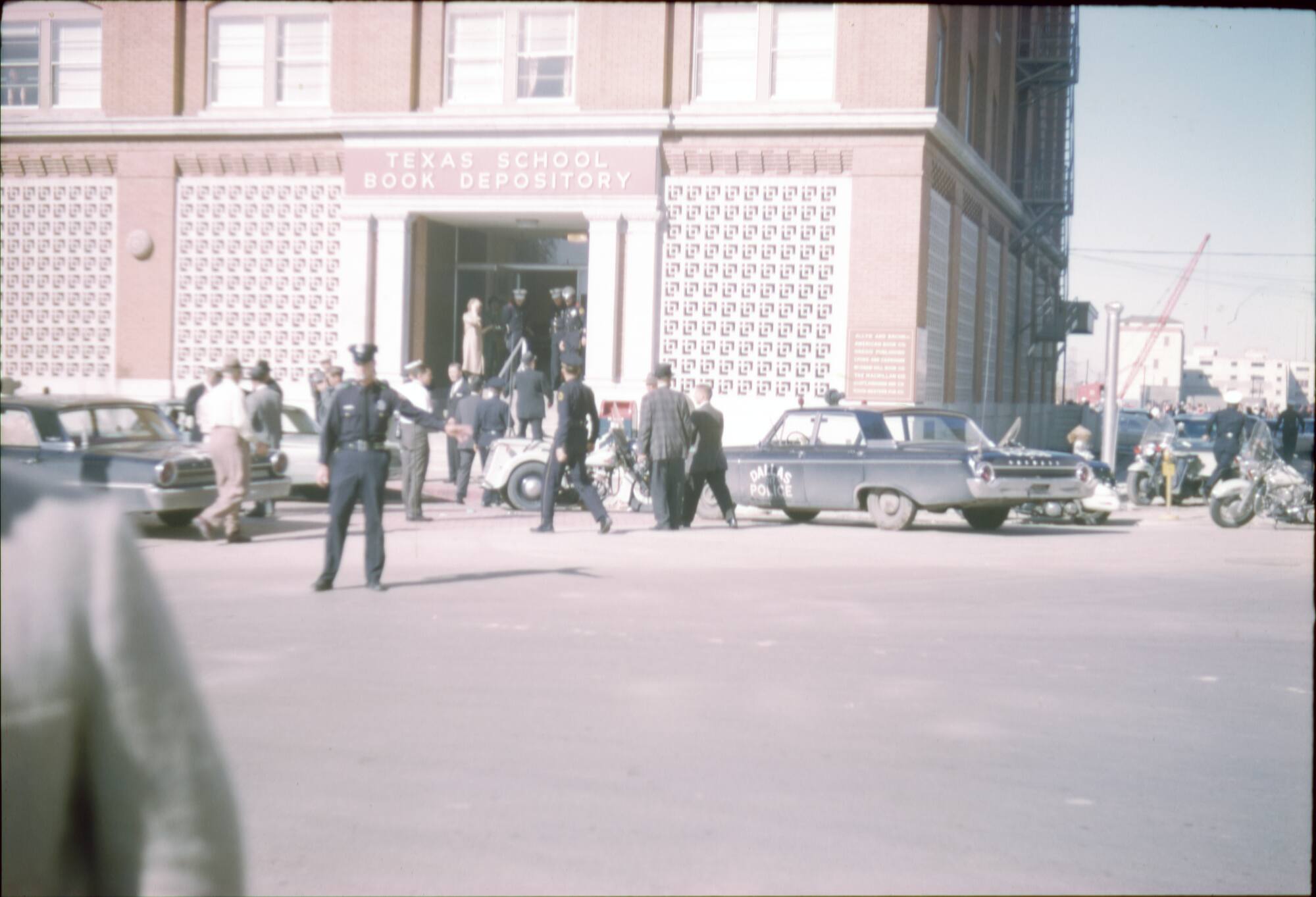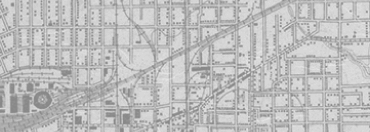


Back
Phil Willis Slide #21
Original 35mm color slide taken by assassination witness Phil Willis showing Dallas police officers, police cars, and motorcycles outside the front entrance of the Texas School Book Depository building from the southwest corner of Elm Street and Houston Street.
Phil Willis Slide #21
11/22/1963
Film
2 × 2 in. (5.1 × 5.1 cm)
Phil Willis Collection/The Sixth Floor Museum at Dealey Plaza
2002.040.0018
Phil Willis' entire family joined him in Dealey Plaza to see the president's motorcade: his wife, Marilyn, their daughters Linda and Rosemary, and Marilyn's parents, Mr. & Mrs. William H. Stubblefield. Neither Rosemary nor the Stubblefields were questioned by the Warren Commission, although the other members of the family were interviewed. - Gary Mack, Curator (1995-2015)
In addition to witnessing the assassination of President Kennedy, Phil Willis was also present at another historic event: the bombing of Pearl Harbor on December 7, 1941. A second lieutenant in the Army Air Corps, Willis was assigned to the 86th Observation Squadron at Bellows Field in Oahu, Hawaii, during the Japanese attack. During World War II, he flew a total of 52 combat missions. Mr. Willis passed away in January 1995, before he could record an oral history with the Museum. However, his wife, Marilyn Willis, participated in a videotaped group interview with other assassination eyewitnesses on November 22, 1996. - Stephen Fagin, Curator
Above the entrance to the building can be seen the original Texas School Book Depository sign that is now in the Museum's collection (https://emuseum.jfk.org/objects/33132). Additionally, the iconic latticework screens that are visible covering the first floor windows of the Texas School Book Depository were made of decorative cast concrete bricks known as "breeze blocks." The purpose of the breeze blocks was so that the ground floor windows could be opened to allow ventilation of the space while cutting down on noise pollution from nearby streets. - Stephanie Allen-Givenspollutiontions and Exhibits Manager

Phil Willis Slide #21
Original 35mm color slide taken by assassination witness Phil Willis showing Dallas police officers, police cars, and motorcycles outside the front entrance of the Texas School Book Depository building from the southwest corner of Elm Street and Houston Street.
Phil Willis Slide #21
11/22/1963
Assassination
Photographs
Eyewitnesses
Police
Elm Street
Houston Street
Willis, Phil
Kennedy, John F.
Texas School Book Depository
Dallas Police Department
Dallas
Film
2 × 2 in. (5.1 × 5.1 cm)
Phil Willis Collection/The Sixth Floor Museum at Dealey Plaza
2002.040.0018
Phil Willis' entire family joined him in Dealey Plaza to see the president's motorcade: his wife, Marilyn, their daughters Linda and Rosemary, and Marilyn's parents, Mr. & Mrs. William H. Stubblefield. Neither Rosemary nor the Stubblefields were questioned by the Warren Commission, although the other members of the family were interviewed. - Gary Mack, Curator (1995-2015)
In addition to witnessing the assassination of President Kennedy, Phil Willis was also present at another historic event: the bombing of Pearl Harbor on December 7, 1941. A second lieutenant in the Army Air Corps, Willis was assigned to the 86th Observation Squadron at Bellows Field in Oahu, Hawaii, during the Japanese attack. During World War II, he flew a total of 52 combat missions. Mr. Willis passed away in January 1995, before he could record an oral history with the Museum. However, his wife, Marilyn Willis, participated in a videotaped group interview with other assassination eyewitnesses on November 22, 1996. - Stephen Fagin, Curator
Above the entrance to the building can be seen the original Texas School Book Depository sign that is now in the Museum's collection (https://emuseum.jfk.org/objects/33132). Additionally, the iconic latticework screens that are visible covering the first floor windows of the Texas School Book Depository were made of decorative cast concrete bricks known as "breeze blocks." The purpose of the breeze blocks was so that the ground floor windows could be opened to allow ventilation of the space while cutting down on noise pollution from nearby streets. - Stephanie Allen-Givenspollutiontions and Exhibits Manager









